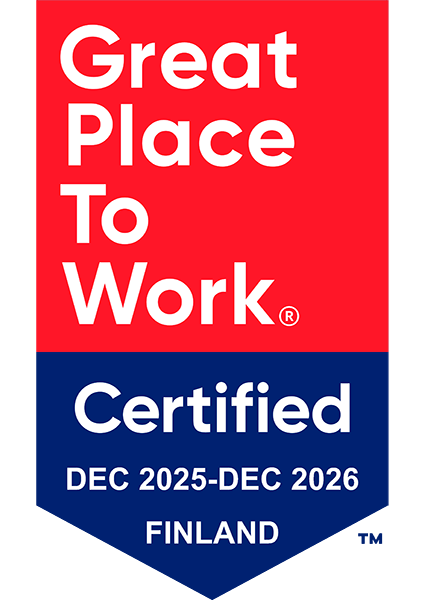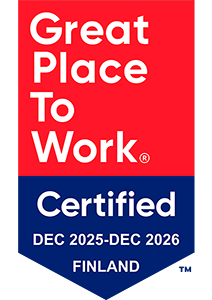Career at Eckerö Line
Eckerö Line has many interesting and fun career opportunities in different areas of customer service, together we aim at creating a personal and unique travel experience for our passengers on board and ashore. Our team is positive, service-minded and multilingual. Welcome to Eckerö Line.
Those working on a ship must have a seaman’s passport and a suitable medical condition
We require that the crew working on board have a valid passport/seaman’s passport and 18 years of age, as well as good English language skills, as English is the ship's official working language.
We apply a drug test policy to new employees. Ship personnel should also meet the medical fitness standards for work onboard. Medical suitability of ship personnel is determined during pre-sea examination or periodic examination. The examination is conducted by a medical practitioner of seafarers recognized by the Finnish Transport and Communications Agency. The physician issues a medical certificate on a form approved for this purpose. The pre-sea examination is always carried out at a health centre for seafarers.
The purpose of the medical fitness examination is to ensure that the people who work in maritime professions, taking into account their health, are able to perform the tasks that the profession requires without endangering maritime safety or their own safety or the safety of others on board. The medical examinations are based on the Act on medical examination of ship personnel.
On international voyages, the ships apply a rotation system of 1:1, i.e. a work period of a certain length is followed by an equally long period off (called compensatory leave ashore). Therefore, each position on board employs two people, while one is working on the ship, the other is free ashore according to the rotation. In the maritime industry, competence and health requirements are defined more precisely than usual by international agreements and national legislation (e.g. ILO Maritime Labour Convention, medical examination guidelines and IMO STCW Convention). In different countries the detailed requirements vary somewhat depending on the country's general level of requirements and systems within health care, so for example a seaman's medical certificate written in one country may not be valid in another.
In all countries, the primary and common goal of medical fitness examinations is to ensure maritime safety. To achieve this goal and due to the special working environment on board, specific requirements have been set for the seafarer’s health and performance.
The eligibility criteria for working on board must be met before you can start working on a ship. Seaworthiness can be affected by many different things, which may require an exemption order procedure or, in the worst case, completely prevent the possibility of working on a ship.
Suitability for working on a ship can be affected by, for example:
- Infectious and parasitic diseases (e.g. hepatitis, HIV/Aids)
- Endocrine, nutritional and metabolic diseases (e.g. diabetes, obesity)
- Mental health and behavioural disorders (e.g. substance abuse/addiction, depression, autism spectrum disorders, psychotic-level disorders)
- Neurological diseases (e.g. epilepsy, sleep apnoea, narcolepsy)
- Circulatory system diseases (e.g. blood pressure diseases, heart diseases/disorders)
- Respiratory diseases (e.g. asthma, COPD)
- Diseases of the digestive system (e.g. Crohn's disease)
- Allergies
- Brain surgeries/injuries
- Syncope


- Company presentation
- Eckerö Group
- Environment and responsibility
- CEO of Eckerö Line
- Career at Eckerö Line


